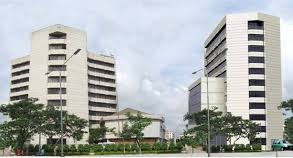Consumers of the country’s largest power distribution network, the Rural Electrification Board (REB) and its affiliated Palli Bidyut Samities (PBS), face uncertainty as tensions between the two bodies escalate.
The crisis reached a new height with PBS employees announcing a “Long March to Dhaka” scheduled for tomorrow. The protest includes a seven-point demand, foremost among them being the removal of the REB chairman. Protesters allege that the chairman has fostered an oppressive work environment and failed to implement a unified service code.
Representatives from 80 PBS associations across the country have pledged to observe the program while maintaining uninterrupted electricity service.
At a press conference held at the Dhaka Reporters Unity, affected PBS officers and employees outlined their grievances. On behalf of 45,000 staff members, they issued a 48-hour ultimatum demanding, among other things, reinstatement of dismissed employees, withdrawal of legal cases, and regularization of irregular staff. Having received no response from the Ministry of Power or REB, they have proceeded with their protest plans.
The protesting officials claim that over the past four months, nearly 4,000 PBS employees have faced punitive actions, including dismissal, forced transfers, and suspensions. Among those present at the press conference were Deputy General Managers Rahat Hossain, Ali Hasan Mohammad Ariful Islam, and Asaduzzaman Bhuiyan; Assistant General Managers Abdul Hakim and Monir Hossain; and Junior Engineer Hasanuzzaman.
REB Labels Protest a “Conspiracy”
In response, REB has issued a press statement describing the planned protest as part of a conspiracy. Signed by Tamanna Kabir, Director (Administration), the release asserts that the merger of REB and PBS and the implementation of a unified service code are government-level decisions and not within the board’s jurisdiction. It emphasized that undermining office discipline and disrupting services would not be tolerated.
REB claimed that despite significant reforms and benefits already granted to PBS employees, a group of officers is pursuing irrational demands to serve personal interests. It accused this group of attempting to destabilize a critical state institution and sabotage public services, especially during a time of political transition under an interim government.
The statement also recalled the nationwide blackout on October 17 last year, labeling it a deliberate act that disrupted services to millions and even led to the death of a patient in Netrokona due to oxygen supply failure. Some REB employees were arrested on sedition charges in connection with that incident and later released on bail.
Employee Benefits and Reforms Highlighted
REB highlighted several employee-friendly initiatives, including:
- Increasing weekly holidays from one to two days.
- Implementing a 5% special incentive effective July 1, 2023.
- Recommending electricity bill subsidies of up to 400 units.
- Regularizing 4,723 Linemen Level-1 staff.
- Appointing 1,302 billing assistants to probationary status.
- Extending contract terms for line workers and meter readers.
- Increasing tenure in one work location from 9 to 12 years.
- Approving mutual transfers for 68 employees.
Additionally, REB has formed multiple committees to improve staff welfare, including one to assist families of deceased employees and another to assess the need for tools and staffing at various PBS branches.
REB concluded its statement by warning against collecting unauthorized subscriptions, organizing unauthorized meetings, or spreading misinformation, all of which violate the Palli Bidyut Samity Employee Service Rules (1992, amended 2012). It reiterated its commitment to institutional reforms and maintaining uninterrupted customer service.

